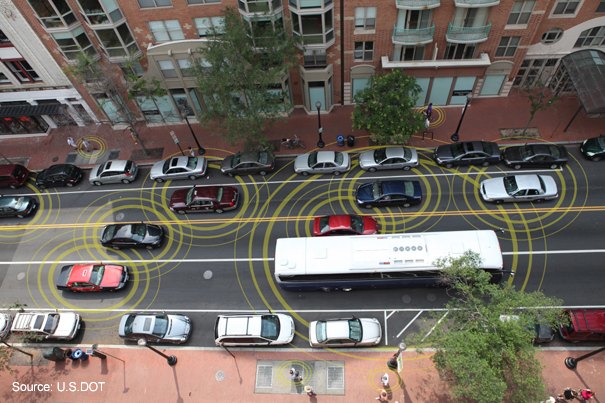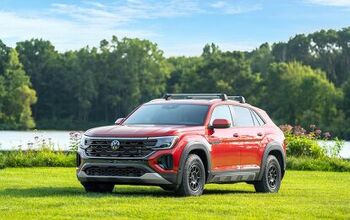US Government Seeks Private Company To Run National V2V Network
Not too long ago, we brought you news of the U.S. government and a handful of automakers coming together to bring vehicle-to-vehicle communication systems online by 2020 at the earliest. Though the government is excited to make your vehicles more connected, running the show is a task the feds simply cannot afford to do.
Automotive News reports the U.S. Department of Transportation, citing “the current fiscal environment” also responsible for the current state of the Highway Trust Fund — is unable to fund, construct or operate the infrastructure needed to make V2V a success. Thus, the agency is seeking to bestow that honor upon a private company, whether it be a Google or a General Motors.
That said, automakers — especially those working with the feds on V2V — aren’t likely so willing to run things, either. Beltway attorney Mark Johnson explains:
Other than the safety benefits from this technology, it’s not clear at this point what benefits the car companies would see from taking on this role. They believe in this technology. We’ve had a sea change over the last two years. But that doesn’t necessarily mean that they want to be the administrator of a nationwide system, or are the most capable candidate to do it.
Funding issues aren’t the only quibble as far as the government is concerned, as it, too, has few inclinations toward managing a massive infrastructure project such as this. The prospect of always having to be one step ahead of hackers, with the specter of the HealthCare.gov launch hanging over their heads, may be too much for any one agency to take on regarding V2V. Instead, a company with deep pockets and ambitions to match — like Google — may ultimately be the one leading the future of vehicle connectivity.
Seattle-based writer, blogger, and photographer for many a publication. Born in Louisville. Raised in Kansas. Where I lay my head is home.
More by Cameron Aubernon
Latest Car Reviews
Read moreLatest Product Reviews
Read moreRecent Comments
- Calrson Fan Jeff - Agree with what you said. I think currently an EV pick-up could work in a commercial/fleet application. As someone on this site stated, w/current tech. battery vehicles just do not scale well. EBFlex - No one wanted to hate the Cyber Truck more than me but I can't ignore all the new technology and innovative thinking that went into it. There is a lot I like about it. GM, Ford & Ram should incorporate some it's design cues into their ICE trucks.
- Michael S6 Very confusing if the move is permanent or temporary.
- Jrhurren Worked in Detroit 18 years, live 20 minutes away. Ren Cen is a gem, but a very terrible design inside. I’m surprised GM stuck it out as long as they did there.
- Carson D I thought that this was going to be a comparison of BFGoodrich's different truck tires.
- Tassos Jong-iL North Korea is saving pokemon cards and amibos to buy GM in 10 years, we hope.


































Comments
Join the conversation
Any kind of V2V implementation that depends on some privileged monopoly to "run" it, is worse than none at all. What a stupid crock!
I'm actually a little amazed outside of CJ (who is so far to the right on economics it's almost questionable if he is a real person or merely an ironic equivalent) that people seem to get the practical realities of this implications. Bravo for understanding the principle concepts to it all. That being said, it sounds more like an issue of the actual maintenance of the system would be the biggest hurdle because it would have to be far more effective than our current cellular system is and maintain far more connections. Understandably new cars would run in an ad hoc system (only talking to each other) but would need to be able to broadcast further and if need to be broadcast to by a massive network node. It's really feasible on a city level but getting to a vast national one would be insanely difficult and not necessarily prohibitively expensive but it would certainly dig into our GDP just the way our infrastructure for basic repairs is as well. We're coming to a head though, I think in the next 10-15 years we're going to see a seismic shift in spending as the left's demographics simply outlive the right's. But that's neither here nor there at the moment.